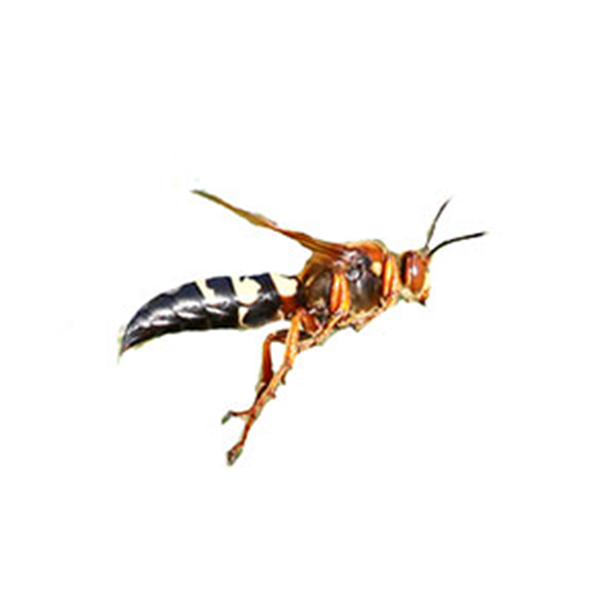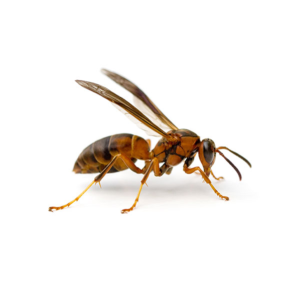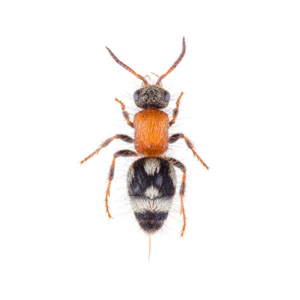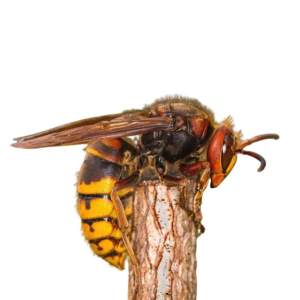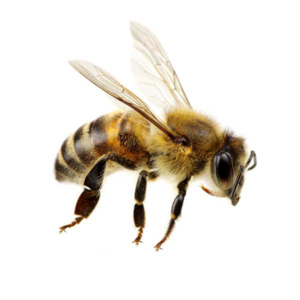Cicada Killer Wasps in Atlanta, GA
Cicada killer wasps, among the largest North American species, hunt cicadas in flight, paralyze them, and use them to nourish their larvae in nests. They’re distributed across the U.S., Mexico, and parts of Central America, preferring to dig burrows in soft, sandy soil. These burrows are commonly spotted in yards, flower beds, along patios, and sidewalks, often in well-drained areas.
Cicada Killer Wasp Habitat
Cicada killer wasps typically emerge as adults in late June or July, often spotted around flowers or busy digging burrows in sandy or loose soil. They nest close to cicada populations, often creating multiple burrows in lawns and on golf courses. These burrow entrances are often surrounded by piles of soil. Male wasps take on a protective role, patrolling the area and warding off potential threats from the lawn.
Cicada Killer Wasp Behaviors, Threats, or Dangers
Cicada killers, unlike many other wasp species, aren’t usually aggressive and seldom sting unless disturbed. While males are territorial, they lack a stinger. Yet, a sting from a female cicada killer can be painful and provoke allergic reactions in some individuals.
These wasps can pose a nuisance to your property. Females create sizable burrows, leading to messes around plants and vegetation. Their burrowing habits may harm plant roots and destabilize structures like pathways. Contact a local expert in wasp removal to effectively address a cicada killer wasp issue.

